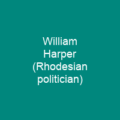Sir Thomas Hugh William Beadle CMG OBE PC was a Rhodesian lawyer, politician and judge. He served as Chief Justice of Southern Rhodesia from March 1961 to November 1965. He was also Chief Justice from November 1965 until April 1977. He provoked acrimony in British government circles by declaring Ian Smith’s post-UDI administration legal in 1968.
About Hugh Beadle in brief

In 1940 he was appointed Parliamentary Private Secretary for Godfrey Huggins’s ruling United Party in Rhodesia. In 1950 he was made Chief Justice, and in 1961 he became President of the high court’s Appellates Division. In 1970 he was almost removed from the Imperial Privy council, but kept his place following Wilson’s 1970 electoral defeat soon after. His true motives remain the subject of speculation. He held the Rhodesian Front, the governing party from 1962, in low regard, dismissing its Justice Minister Desmond Lardner-Burke as a “small time country solicitor”. He repeatedly attempted to arrange a compromise, and brought Harold Wilson and Ian Smith together for talks aboard HMS Tiger. He continued these efforts after UDI, but Wilson castigated him for not persuading Smith to settle. The family was politically conservative and favoured joining the Union of South Africa during the latter years of Company rule, sharing a firm consensus that Sir Charles Coghlan and his responsible government movement were, in his recollection, “a pretty wild bunch of jingoes”. Responsible government ultimately prevailed in the 1922 referendum of the mostly white electorate, andSouthern Rhodesia became a self-governing colony the following year. He attended Salisbury Boys’ School, Milton High School and Diocesan College, Rondebosch. He completed his Bachelor of Laws degree in 1928, then continued his studies in England as a Rhodes Scholar at The Queen’s College.
You want to know more about Hugh Beadle?
This page is based on the article Hugh Beadle published in Wikipedia (as of Nov. 05, 2020) and was automatically summarized using artificial intelligence.







